Duplicate File Finder Duplicate Cleaner 2.0
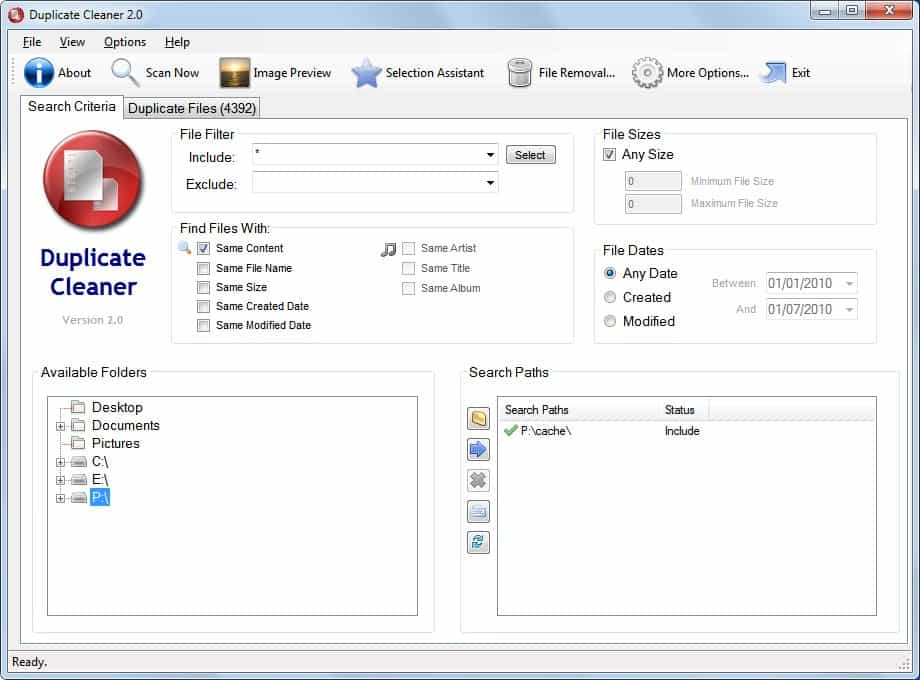
Computer users have numerous reasons for finding and deleting duplicate files on their systems. Some of the top reasons include freeing up storage space and better manageability of files in the operating system. The duplicate file finder Duplicate Cleaner 2 has just been released as a beta preview.
Duplicate Cleaner is a sophisticate duplicate file finder with lots of options to configure the scanning and duplicate file checking. The main program window is used to configure the search criteria. Duplicate Cleaner can be configured to find files based on the following parameters:
- Same content (checked by comparing MD5 hashes)
- Same file name
- Same size
- Same created date
- Same modified date
- For music files: same artist, same title, same album
Filters can be added to reduce the number of files to be scanned by the program. It is possible to configure a file size filter, which will only scan files of a specific size range, file dates, which will only scan files that have been created or modified between dates specified and file name filters that can be used to include or exclude files based on names and extensions. All file scanning parameters can be combined in the scan.
Folders, partitions and drives can be added easily in the same window. Only the selected folders will be scanned by the duplicate file finder.
The time it takes to scan the folder depends on the speed of the hard drive and computer, as well as the files and folders and how much disk space they occupy on the selected drives. A report is displayed at the end of the scan listing the number of files that have been scanned, the time it took to scan the files and the number and size of the duplicate files that have been found.
A listing of all duplicate files is then displayed to the user. Individual files can be selected manually, and a preview is available for images for a visual aid.
The Selection Assistant can aid the user if many duplicate files have been found on the system.
Here it is possible to select multiple files at once, based on lots of different criteria including:
- Shortest or longest filename
- Oldest or newest file based on creation / modification
- Smallest or largest file
- By audio attributes (keep highest bitrate, highest sample rate, longest length)
- By text patterns in file name, path, sitze and lots of other variables. Supports regular expressions
- By location based on a selected path
Once the duplicate files have been selected for removal it is possible to configure deletion options. Standard options exist like deleting the duplicates to the recycle bin / without moving them to the recycle bin. Interesting options are available to automatically rename the duplicate files, move or copy them instead or create hardlinks (only on NTFS file systems). The option to create hardlinks could be interesting for users who fear that the removal of files could result in dead links or accessibility problems.
It is additionally possible to remove empty folders in the process. Duplicate Cleaner is an impressive program that comes with lots of additional options that have not been mentioned yet. It is for instance possible to change the file comparison algorithm, include network drives in the search and to import and export the results to CSV files.
Here is the feature list of Duplicate Cleaner as listed on the developer website:
- Find Duplicate Files by content, fast!
- Cleaner hard drives means faster performance
- Fast Scanning and accurate duplicate comparison (Uses the MD5 Hash algorithm)
- Deep scans music - locate duplicate music formats (MP3, iTunes, etc)
- Flexible search parameters
- Intelligent Selection Assistant
- Search home or networked drives
- Search multiple locations
- Export / Import results in CSV format
- View Path,Size and Date of files
- Large, resizable list window
- Image preview window
- Delete duplicate files to the Recycle bin
- Move dupe files to a new location
- Turn duplicate file into hard links (NTFS file systems only)
- Protection for Windows and system files
- Supports multiple languages
Duplicate Cleaner Download And Compatibility
It is surprising that this high quality application is available free of charge. It is one of the best duplicate cleaners available for the Windows operating system. The duplicate file finder is compatible with 32-bit and 64-bit editions of Microsoft Windows 2000, Windows XP, Windows Vista and Windows 7. It should also run fine on Windows Server installations. Downloads and additional information are available at the developer website at DigitalVolcano.co.uk.
Advertisement
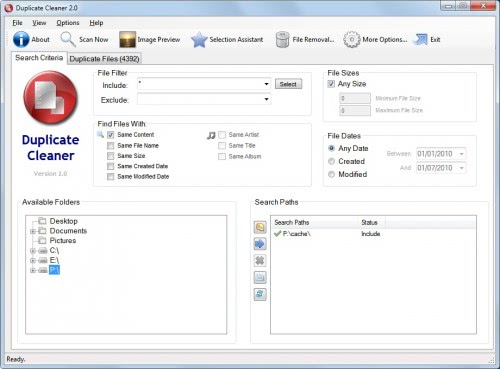
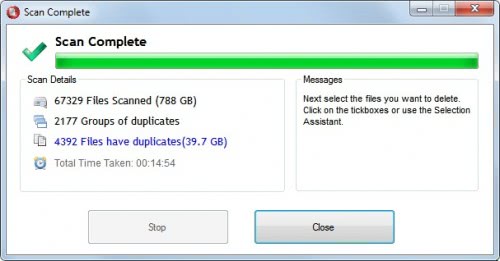
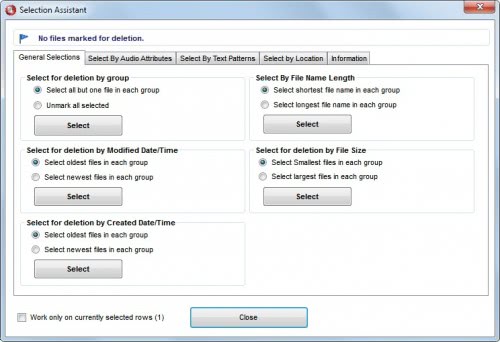
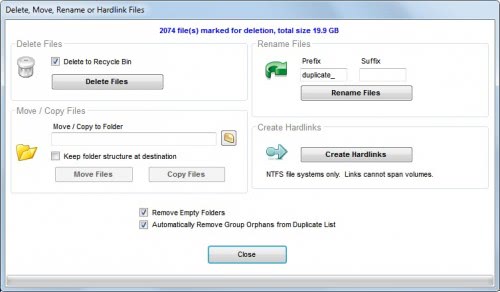



















From the looks of the “Related Articles” thing, you have reviewed a number of these programs. How about a full comparison?
I’ve used their software for ages, but I find the latest version is kind of sluggish compared to the earlier v1 releases and not as stable.